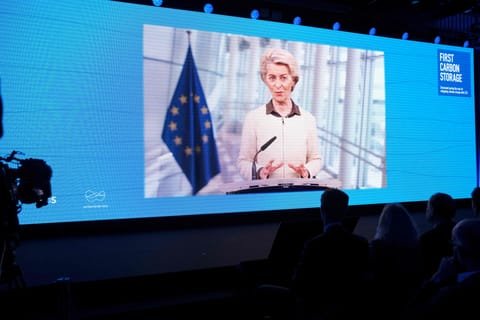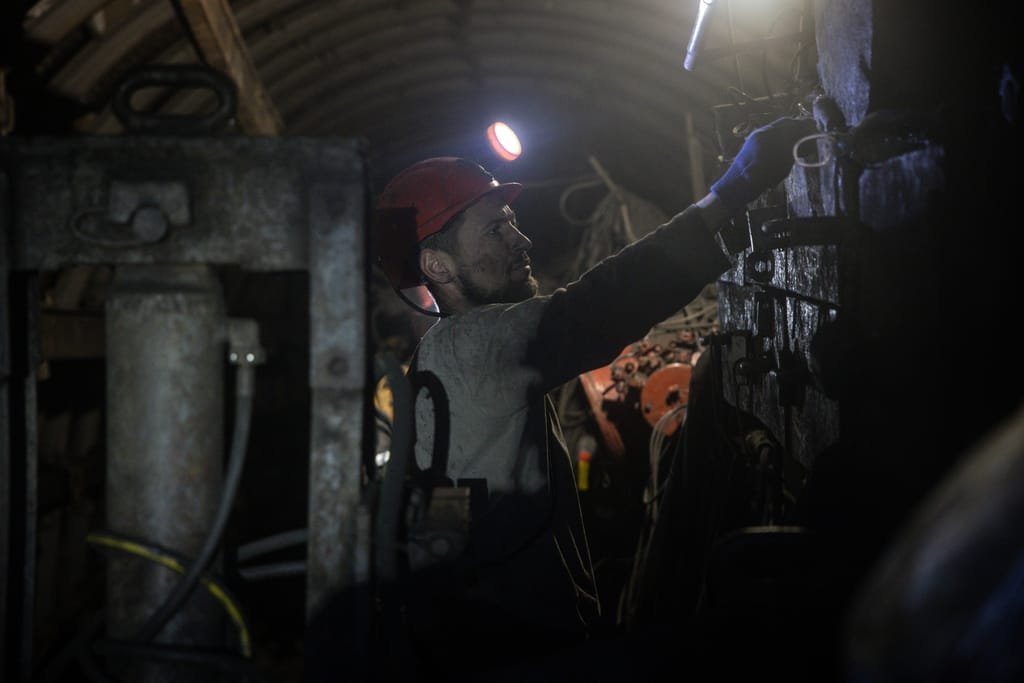Confidential contracts seen by POLITICO do not tend to support claims that the Commission paid green groups to lobby on its behalf.

BRUSSELS — Witch hunt or righteous scrutiny? It’s not so black-and-white.
Conservative lawmakers have spent much of the last month accusing the European Commission of paying environmental activists to discreetly lobby on its behalf in favor of the Green Deal.
This would mean the Commission has been acting as a political body defending its own interests at taxpayers’ expense, they argue, when it should be serving the European general interest.
Nongovernmental organizations have pushed back, arguing their Commission-funded work contributes to an open debate about EU policymaking and that they are not taking orders. The EU executive has also said that none of the activities listed in these contracts with NGOs are illegal, and that the activities performed — including lobbying — are the responsibility of the NGOs, not the Commission.
At stake is the question of who wields the most influence in Brussels policymaking circles — which often comes down to who has the most money to pay lobbyists.
POLITICO has seen and analyzed 28 contracts signed between the Commission and NGOs — deals that infuriated right-wing lawmakers in the European Parliament — to compare their contents with what has been claimed during parliamentary debates.
Shadow lobbying and instructions from the Commission
What was claimed: The Commission has used NGOs for “shadow lobbying,” said Dirk Gotink from the center-right European People’s Party (EPP). The Commission’s contracts also contain “instructions” to “manipulate” the legislative process, according to Monika Hohlmeier, also from the EPP.
What we found: The fact that the Commission gives money to NGOs and their campaigns is not shadowy: The Parliament agreed to it in 2020. By supporting the work of NGOs in Brussels, the so-called LIFE program aims to balance the representation of public interests in policymaking debates, in which the private sector usually has much more money to spend. Calls for LIFE grants and their conditions are public, and those 20 pages contain no sign that NGOs applying for funding must align with the Commission’s interests or lobby the Parliament on its behalf to get the money.
NGOs are required in confidence to disclose the actions they plan to take to the Commission before accessing the EU’s cash pot — which sets a maximum of €700,000 per NGO per year. According to some EPP lawmakers, these work programs could be considered “instructions” from the Commission, as they can contain descriptions of advocacy work, including meetings with representatives of EU institutions and MEPs as well as organizing events, social media campaigns and so on. However, NGOs are solely responsible for drafting these work programs and the Commission does not amend them, NGO representatives and the Commission said.
Nowhere in the 28 contracts granted to NGOs and analyzed by POLITICO does the Commission provide direct instructions to lobby on its behalf. Some 60 pages of clauses describe the conditions NGOs must follow, including rules against fraud, corruption and disinformation. The Commission also says that if NGOs don’t carry out their work programs, their grants can be cut. But the Commission itself doesn’t mention in the contracts any requirement to promote the Green Deal, or to target specific MEPs or other services of the Commission, as a condition for getting a grant. The Commission even adds the disclaimer that the “views and opinions expressed” by the NGOs “do not necessarily reflect those of the European Union.”

In a nutshell, the controversy was fueled by the suspicion that the Commission only gave money to NGOs who agreed with its agenda. Nothing in the contracts suggests that happened.
Funding attacks on farmers or Mercosur
What was claimed: “Lawsuits against farmers, authorities, companies and infrastructure were part of the project programs,” said Monika Hohlmeier (EPP).
What we found: Two contracts analyzed by POLITICO do contain work programs mentioning that the NGOs receiving the grants intend to explore legal pathways, including launching lawsuits or supporting citizens to file legal complaints, to improve the implementation of EU environmental law. One contract states that the NGO aims to “increase the use of rule of law as a powerful, impactful tool for driving systems-level change on environmental issues,” and adds that it wants “to bring about environmentally friendly practices across the agricultural sector through legal and advocacy means.”
In this case, the EPP attack appears grounded in fact.
What was claimed: “The fight against free trade agreements such as Mercosur was also one of the objectives of the funding. The aim was to organize mass protests [and] mass mail campaigns to put public pressure on members of parliament who held a different view to the networks,” said Monika Hohlmeier (EPP).
What we found: POLITICO reviewed 28 contracts and none described campaigning against the Mercosur trade deal or organizing large protests and mass emailing campaigns.
The misuse of EU money
What was claimed: The LIFE program provides “€5.5 billion to defame farmers, already burdened by standards that are out of touch with the reality on the ground, to attack our businesses, already suffocated by burdens and obligations of all kinds, and to denigrate our nuclear industry, despite the fact that it is carbon-free and reliable,” said Céline Imart of the EPP.
What we found: The current LIFE program has a budget of €5.4 billion for the 2021-2027 period. Of that budget, €15.6 million is dedicated annually to operating grants for environmental NGOs. The rest goes toward financing green innovation, the circular economy, energy efficiency, nature conservation projects, and initiatives to tackle pollution across the EU.
The contracts analyzed by POLITICO do not suggest that NGOs planned specific campaigns against farmers or businesses among grant-financed activities. They do, however, mention social media campaigns criticizing the use of pesticides.
What was claimed: “NGOs get hundreds of thousands of euros … [which] are used for lobbying against MEPs,” said Alexander Bernhuber (EPP).
What we found: Individual NGOs can receive up to €700,000 per year under a LIFE operating grant. Most also receive funding from philanthropic foundations or individual donations. The contracts analyzed by POLITICO do not state that NGOs planned to lobby “against” specific MEPs. Some of the contracts, however, mentioned that MEPs and other representatives of EU institutions would be contacted. No names were given.
The money that NGOs receive under the LIFE operating grants can be used for advocacy and lobbying, but not just to target MEPs. According to the contracts reviewed, NGO work programs also include drafting reports and briefing notes, and organizing events and social media campaigns. Those may target not only MEPs but also Commission officials and national government representatives, as well as businesses.
The ethics of it all
What was claimed: The way grants are awarded to NGOs is “non-transparent,” said MEP Thomas Geisel, who is not attached to any political group.

What we found: Environmental groups have to respond to public calls for applications, which set out the requirements and eligibility criteria for receive an operating grant under the LIFE program — such as being a non-profit organization, being independent of political parties and commercial interests, and being active at the EU level on environmental and climate policy.
Applications are then assessed by EU agencies such as the European Climate, Infrastructure and Environment Executive Agency (CINEA), not by the Commission directly. The names of all grant beneficiaries are publicly available, along with how much they receive annually.
NGOs are also regularly audited by the Commission to ensure they comply with the rules for spending EU funds. The contracts do, however, include confidentiality clauses.




